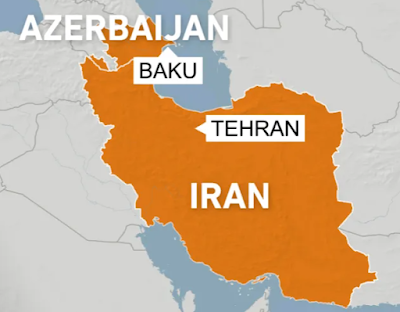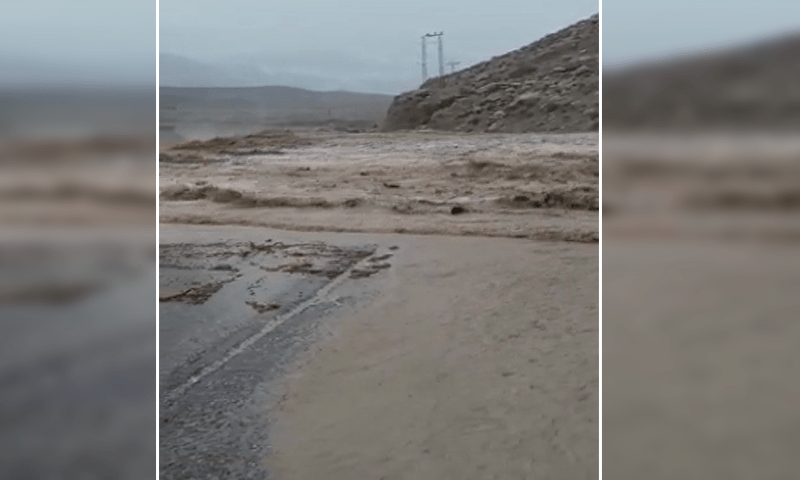Why Azerbaijan always a problem for its neighbors ?
Tensions between Iran and Azerbaijan as well as Armenia and Azerbaijan have been steadily ramping up in recent months, and divisive incidents have become almost a weekly occurrence.
The Iranian Foreign Ministry on Friday promised “reciprocal diplomatic action” after Azerbaijan expelled four Iranian diplomats over “provocative actions” it did not name.
Azerbaijan arrested six of its own nationals hours earlier, who were accused of being linked to Iranian secret services and plotting a coup in the Caspian nation. It was the latest in a series of arrests in recent months with Baku linking all suspects to Tehran.
Azerbaijani President Ilham Aliyev, a close ally of Iran’s historical rival Turkey, blamed Tehran after a man stormed the Azerbaijani embassy in the capital in late January, killing its head of security and wounding others.
Iran said diplomatic relations should remain unaffected as the incident was the work of a lone gunman with personal motives, but Aliyev closed down the embassy as he denounced the “terrorist” attack.
Azerbaijan has also criticised Iran for allegedly backing Armenia in the decades-long conflict over the breakaway region of Nagorno-Karabakh.
Iran, on the other hand, which is home to millions of Turkic-speaking ethnic Azerbaijanis, has long accused Azerbaijan of inciting separatist sentiment inside its northwestern border.
The Israel factor
But even with all the points of contention in bilateral relations, perhaps a fast-growing relationship between Azerbaijan and Israel is what has irked Iran the most.
Tehran has been increasingly warning Baku against warming up to Tel Aviv, but the inflammatory rhetoric reached new heights last month after Israel and Azerbaijan’s top diplomats discussed “forming a united front” against Iran in a press conference.
Azerbaijani Foreign Minister Jeyhun Bayramov was in Tel Aviv to inaugurate his country’s embassy after Baku appointed its first-ever ambassador to Israel.
This new approach, Iran’s Foreign Ministry warned, could constitute a national security threat for Iran which cannot be ignored.
A majority of politicians in Iran’s parliament also denounced Azerbaijan’s move, saying in a statement “the Muslims of the world will consider them accomplices of the Zionist regime in the murder and crimes against the oppressed Palestinians”.
There are a variety of reasons and objectives behind the growing ties between Azerbaijan and Israel, not all of which are directly linked with Iran, according to Vali Kaleji, a Tehran-based Caucasia and Central Asia analyst.
He told Al Jazeera that politically, Azerbaijan needs a Jewish lobby to counter Armenian influence in the West, especially in the United States, while economically, Azerbaijan is a major supplier of oil to Israel.
“From a military point of view, the Republic of Azerbaijan, under the influence of the Armenian diaspora community, is not able to provide peace and get advanced military and defence equipment from European countries and America,” Kaleji said.
“In such a situation Turkey, Israel, and Pakistan have become the three main sources of defence and military needs of the Republic of Azerbaijan,” he added, pointing out this is a main area of concern for Iran.
Will there be war?
Tensions between Baku and Tehran have increasingly manifested in military form, with both sides flexing their military muscles in exercises meant as direct warnings.Both the Islamic Revolutionary Guard Corps (IRGC) and the army in Iran have held several rounds of high-level exercises in the northwestern parts of the country and near the border with Azerbaijan since the Nagorno-Karabakh war ended in 2020, displaying ground and air capabilities.
The most serious came last October when the IRGC for the first time built a pontoon bridge over a part of the Aras river that marks parts of the long border between Iran and Azerbaijan.
Days later, Iran’s Foreign Minister Hossein Amirabdollahian was in the southernmost Armenian province of Syunik to send another direct message to Azerbaijan and Turkey by inaugurating a consulate and declaring Armenian security as being tantamount to Iranian security.
The move was aimed at countering the “Zangezur corridor” that Azerbaijan and Turkey wish to establish between the exclave of Nakhchivan and the Azerbaijani mainland, which would effectively sever a major Iranian transit link with the South Caucasus and beyond.
Kaleji said – similar to the ebb and flow of tensions between Tehran and Baku in the past three decades – the current escalation could eventually lead to a cycle of de-escalation.
“Although recent tensions are very serious, there are many factors that prevent military conflict, including economic and trade interdependence, transit routes between Iran, Azerbaijan and Russia, and also Azerbaijan’s dependence on Iran’s communication route to reach Nakhchivan,” he said.
He also pointed out diplomatic channels remain open through the Azerbaijani consulate in Tabriz, in addition to the Iranian embassy in Baku and consulate in Nakhchivan, despite the closing down of the embassy in Tehran.
Turkey and Russia – which is increasingly growing closer to Iran after the Ukraine war – can act as mediators, a role similar to that currently played by China in repairing ties between Iran and Saudi Arabia, according to Kaleji.
“However, the fact is that Turkey and Russia, unlike Iran, do not have a threatening perception of Israel’s role in the Republic of Azerbaijan, the Zangezur corridor, and the threat of the common border between Iran and Armenia,” he said, adding the first step would be to understand those concerns and potentially follow up with joint regional talks.



Comments
Post a Comment